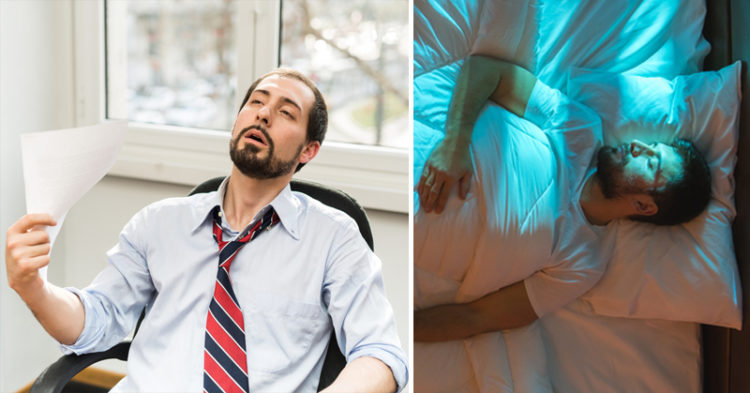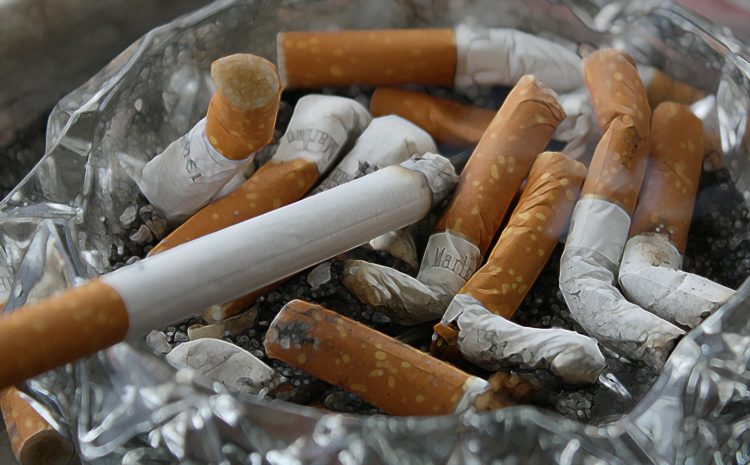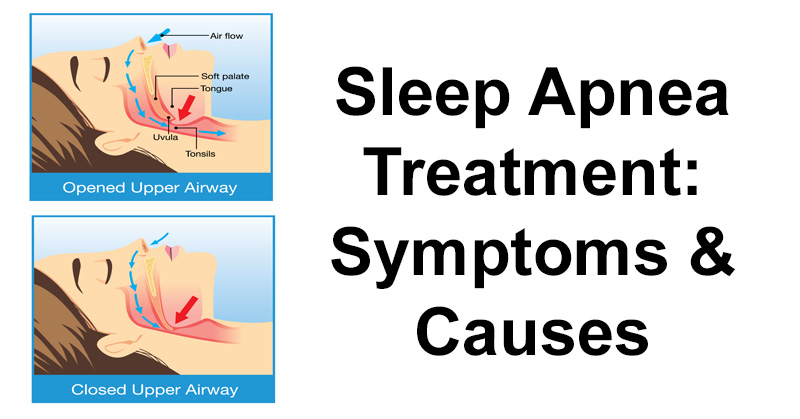Are you suffering from poor quality sleep because of uncontrollable pauses in breathing? If you’re taking shallow breaths during sleep and suddenly waking up startled, you may have sleep apnea. Sleep apnea is a disorder that causes someone to repeatedly stop breathing. This article has the key sleep apnea treatment methods and natural remedies for sleep apnea you need to know.
The Difference Between Snoring and Sleep Apnea
In the course of sleep apnea, a person stops breathing up to 30 times every hour. This occurs often for very brief moments of time and without the person being aware of it at all. Shockingly, many people with sleep apnea think that they actually get good sleep!
This is not just heavy snoring but a serious medical diagnosis. Sleep apnea may even be life-threatening, as it can lead to severe negative symptoms and decreased quality of life.
Breaks in normal breathing cause less oxygen to make its way to the brain and elsewhere around the body. Therefore, people with sleep apnea wake up suddenly out of sleep and gasp for air to reopen their airways. The entire start-and-stop breathing process associated with sleep apnea can cause serious symptoms.

Anyone who sleeps in close proximity to you might be able to help clue you in on your own sleeping habits. Do they notice you snoring loud enough that it wakes them up repeatedly? Do they report that you’re stopping and starting breathing, waking up startled or gasping for air? Those with sleep apnea suffer strong gasping, shaking and choking sounds that wake you up suddenly. You can also use a tape recorder to track your own breathing sounds.
Normal snoring also doesn’t tend to make people tired, distracted and irritable during the day. Normal snoring typically doesn’t usually impair sleep quality. Chronic fatigue is one of the biggest signs of poor sleep quality due to sleep apnea. If you notice changes in concentration, mood, memory, weight, appetite and personality, you might have sleep apnea.
Sleep Apnea Causes and Risk Factors
Sleep apnea affects more at least 12 million to 18 million Americans every year.
The most common sleep apnea causes are obesity, older age, and being male. Sleep apnea is much more common in adults and the risk keeps increasing over the age of 45. Having a narrowed airway or congestion or enlarged tonsils and swollen adenoids due to illnesses is another cause. (1, 2)
Risk factors include a family history of sleep disorders and excessive use of alcohol and smoking cigarettes.
Frequently taking sleep-aiding drugs, sedatives or tranquilizers and having a history of medical complications are also factors. Those diseases include heart disease, stroke, autoimmune disorders or thyroid disorders.
Sleep apnea is the leading cause of excessive daytime drowsiness in adults (3).

A study found that sleep apnea is associated with double the risk for having a stroke! It can also increase blood pressure, risk for blood clots and other cardiovascular diseases.
Sleep Apnea Symptoms
Sleep apnea symptoms including loud snoring, choking noises, and poor sleep. Feelings of fatigue and anxiety during the day are also common. Waking up suddenly or abruptly and feeling startled by a loss of breath is one of the signature sleep apnea symptoms.
Shortness of breath when waking up, night sweating and frequent urination are other symptoms. Also look out for waking up with a dry mouth, sore throat or bad breath and having headaches.
Insomnia, trouble concentrating, poor memory and brain fog are also symptoms. Sleep apnea can also make you more irritable, anxious and depressed.
Missing sleep can take years off your life. Long-term complications of sleep apnea can include an increased risk for many diseases. These include heart disease, stroke, diabetes, obesity, depression, memory problems, viruses and sexual dysfunction. (4)
Sleep apnea can also lower immune function and higher risk for other disorders via hormonal imbalances.
Sleep Apnea Treatment
1. Achieve and Maintain a Healthy Weight
People who are obese have been found to have four times the risk of developing sleep apnea that people who are a normal weight. Excess fat inside the neck affects your throat muscles and breathing capabilities. The more overweight you are, the more likely fat deposits around your upper airway can obstruct normal breathing. Therefore, sleep apnea treatment starts with reaching a healthy weight.
For a man, neck circumference over 17 inches, and over 15 inches for a woman greatly raises the risk for sleep apnea.
To reaching and stay at a healthy body weight, eat a high-fiber diet. Some of the best sources of dietary fiber include fresh vegetables, fruit, nuts, seeds, sprouted beans or legumes. Ancient whole grains should also be included as part of your sleep apnea treatment. Try to eat at least 25–30 grams of these fibers daily.
Eating healthy fats and enough protein is an important part of natural remedies for sleep apnea. Coconut oil has natural fat-burning effects, and improves gut health.

Real olive oil, avocado, nuts and seeds also have healthy fats. High protein foods like cage-free eggs and lentils are good for building muscles.
Essential oils can also help with weight loss and are great natural remedies for sleep apnea. Grapefruit, cinnamon and ginger oil can help control your appetite, hormones and digestive symptoms.
Adaptogen herbs like maca, ginseng and rhodiola can help control health conditions that can make it hard to lose weight. These include high amounts of stress, thyroid issues, leaky gut, adrenal fatigue, cellular toxicity and candida.
Get regular exercise as it helps regulate hormones, adds muscle mass, burns calories and can break up nasal congestion. Try to get at least 30 minutes of moderate activity, such as a brisk walk, most days of the week. You can also stand more during the day and take group classes, including yoga and Tai Chi.

2. Cut Out Excessive Alcohol, Smoking and Overuse of Sedatives
Alcohol can interfere with sleep quality and sedate the throat muscles like the uvula and palate. These muscles are needed to help control breathing. Over-the-counter sleep aids, sedatives and prescription tranquilizers can have the same effects. This can lead to worsened snoring and other symptoms, plus more grogginess during the day. At the least, plan not to have any drinks at least three hours before going to bed.
Both smoking and alcohol can also contribute to inflammation and fluid retention in the airways, which disturbs normal sleep. Smokers are three times more likely to have obstructive sleep apnea than are people who’ve never smoked, just in case you needed another reason to quit. (5)
Alcohol, smoking and sedatives work again any sleep apnea treatment you try and should be removed completely.

3. Treat Acid Reflux, Congestion and Coughs
Esophageal reflux can happen when acid appears in the throat and voice box. This causes irritation and swelling around certain throat muscles. Coughs might also irritate your upper airways and increase snoring. Adjusting your diet, reducing exposure to allergies and raising your head while sleeping can help reduce reflux and congestion.
4. Humidify Your Bedroom
A humidifier is one of the best natural remedies for sleep apnea. Some people report decreased snoring, less congestion and clearer breathing when they sleep with a humidifier in their bedrooms. This is a tried and tested sleep apnea treatment that works!

A humidifier might be able to help encourage your sinuses to drain and more air to move through your airways. You can also rub essential oils such as eucalyptus oil on your chest before sleeping. This helps naturally open your airways and soothe a stuffy nose or throat.
5. Adjust Your Sleeping Position
Elevating your head while sleeping might be able to help lower snoring. It’s also a good idea to avoid sleeping on your back. Sleeping on your back causes snoring and other symptoms, This is because it presses your tongue and palate tissue against the back of your throat.
Sleeping on your side using a pillow that keeps your head slightly raised is ideal. A study shows it is usually the best sleep position to alleviate sleep apnea symptoms. A second option is to sleep on your stomach as opposed to your back. (6)
6. Consider Using a Snore Guard or Sleep Device Temporarily
A temporary sleep apnea treatment is to control snoring by using a snore guard that you insert into your mouth. Snore guards work by boiling the pliable device and fitting it into your mouth. It helps bring your lower jaw forward slightly and keeps your airways more open.


